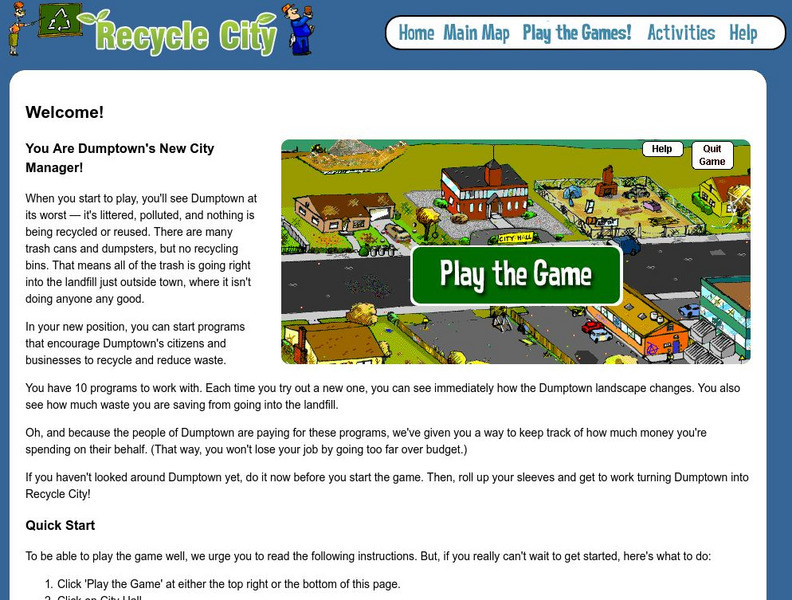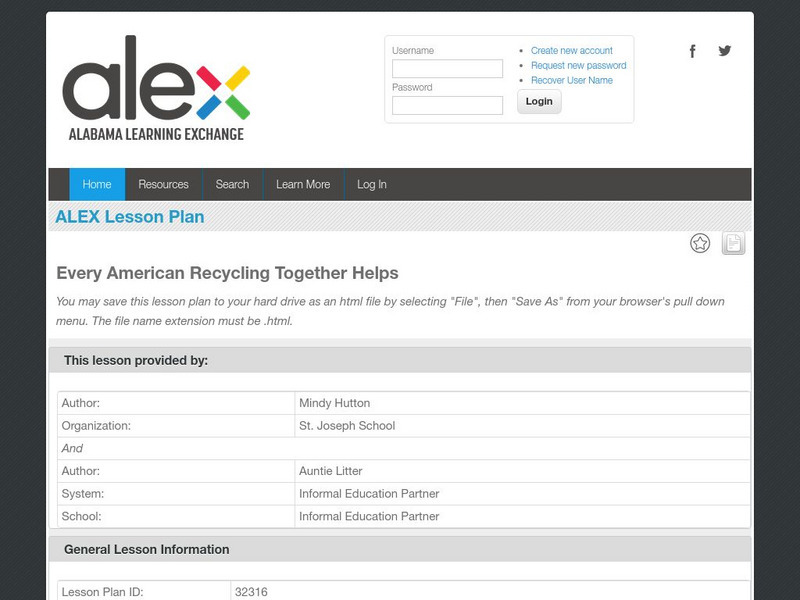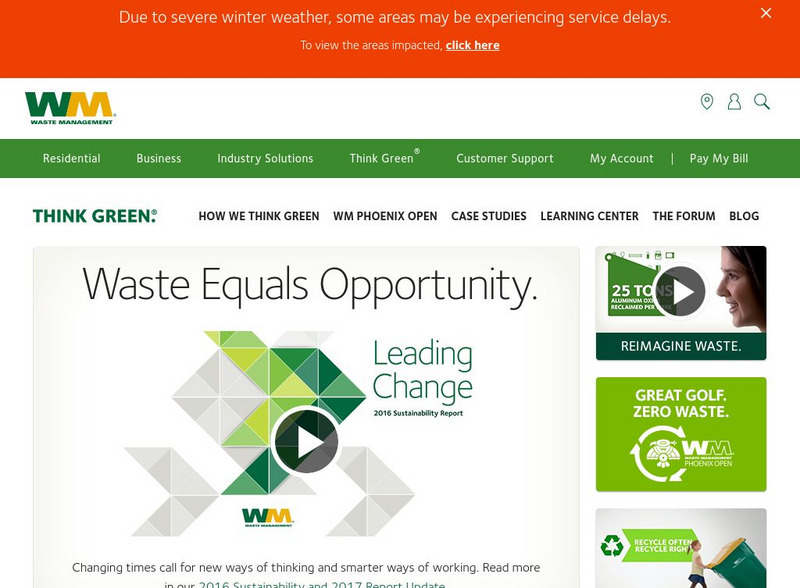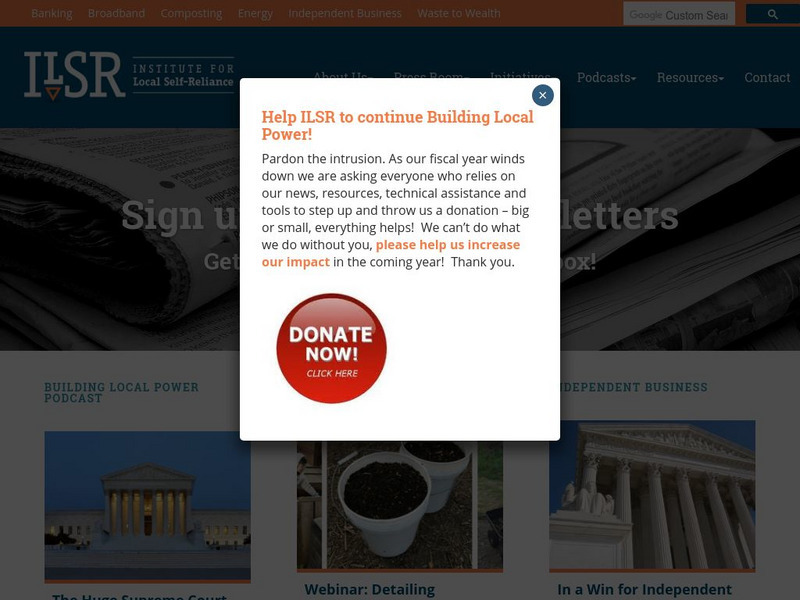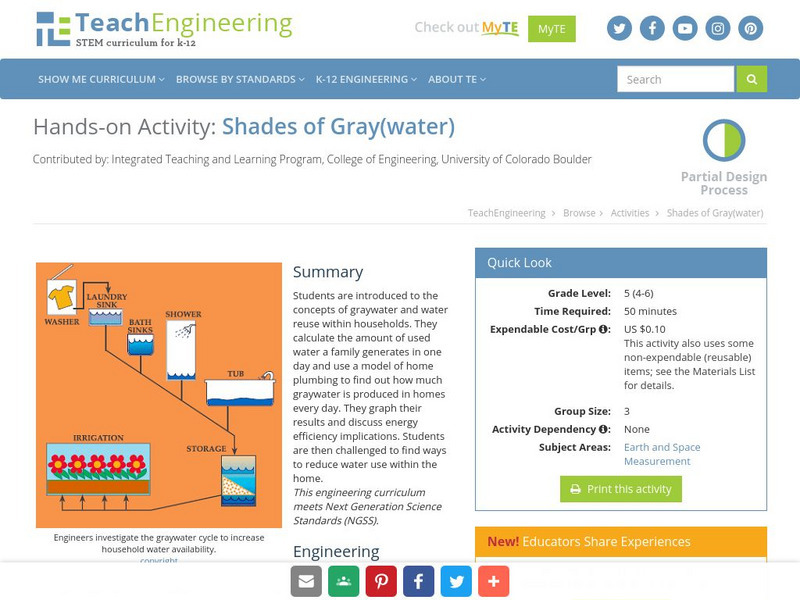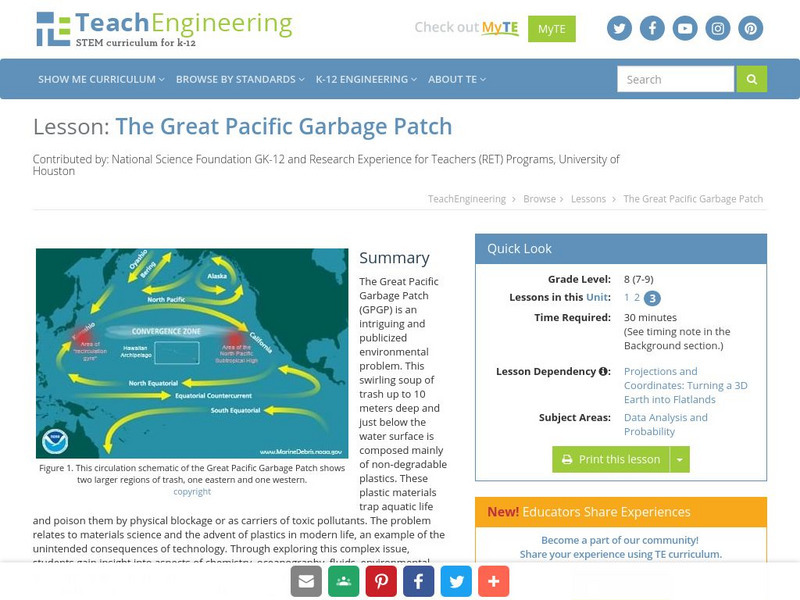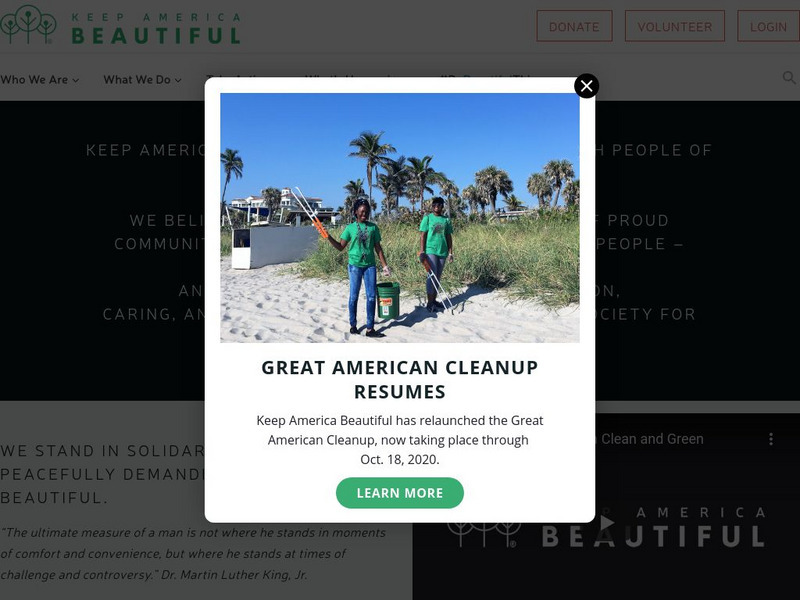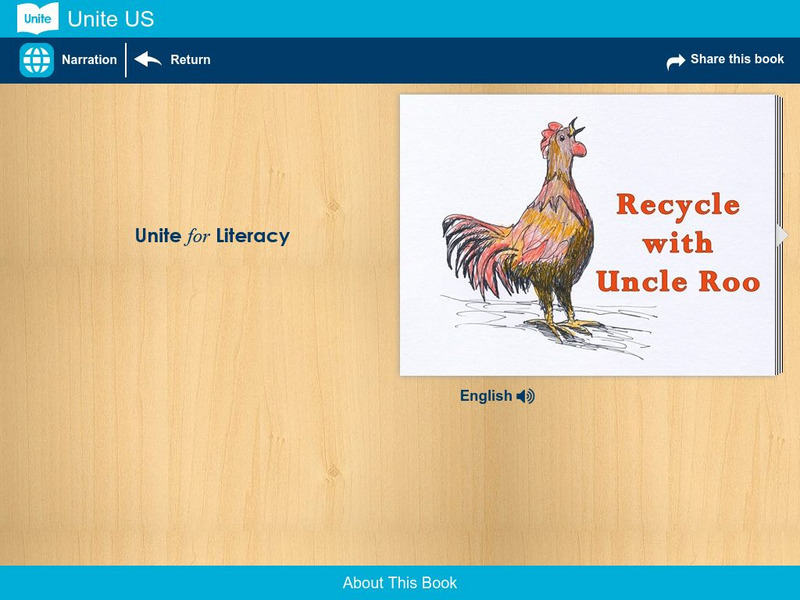Science Buddies
Science Buddies: Alternative Sources for Paper Fiber
If you're interested in arts and crafts, you might like this project. It uses several alternative, renewable sources of fiber to make paper, and compares the resulting papers for strength and writing quality.
Science Buddies
Science Buddies: Recycling Greywater: Can Plants Tolerate It?
Water is a valuable resource many often take for granted. This exercise however gives you the opportunity to learn about and discover how greywater (water that has been used for washing or bathing) can be used for watering ornamental...
Science Buddies
Science Buddies: Waste Not, Want Not: Use the Microbial Fuel Cell to Create Elec
Gross. What is that in the toilet? But maybe it's not just gross. Did you know there are bacteria that digest organic waste and create electrons? What if there was a way to collect those electrons to power a circuit? In this science fair...
Texas Commission on Environmental Quality
Tceq: Lesson Plans & Resources for Teaching Environmental Sciences [Pdf]
A large collection of lesson plans on environmental topics. The lessons are broken up into the broad categories of air, water, and waste, and look at issues around quality, pollution, conservation, and recycling. There are activities for...
US Environmental Protection Agency
Epa: Recycle City
This interactive site allows students to implement recycling programs to transform "Dumptown" into "Recycle City". To make this simulation realistic, students must implement the programs within a budget.
US Environmental Protection Agency
Epa: Dumptown Game
This fun game helps students learn ways to recycle, reduce waste, and compost. You can also create your own Recycle City Scavenger Hunt.
Geographypods
Geographypods: Patterns and Change: Patterns in Resource Consumption
This collection of three learning modules looks at issues related to resource consumption. It examines theories about how population size affects consumption, the changing patterns of energy consumption, and ways to minimize consumption....
PBS
Pbs Kids: Daniel Stories: "Daniel Tiger's Neighborhood: "Neighborhood Clean Up"
Read along with Daniel and he and his friends clean up the playground and learn about recycling.
Other
Kids Boogaloo: Global Warming
A terrific site to help younger students learn about global warming and the different ways that kids can help fight to prevent it.
Other
American Beverage Association: Recycling
The interactive resource consists of information, news, handouts, projects, and additional resources about recycling. Some topics examined are what you can do, packaging, news, and innovation.
Alabama Learning Exchange
Alex: Every American Recycling Together Helps
Lesson where students learn about recycling by collecting trash from the schoolyard and watching a podcast about recycling. Additional activities are provided corresponding to different subject areas, such as reading, math, social...
Other
Neef: National Environmental Education Week
A toolkit preparing students with STEM knowledge to apply to solving environmental problems. Focused lessons on topics like biomimicry, environmental conservation, and sustainable energy. Games and apps are recommended.
eSchool Today
E School Today: Your Cool Facts and Tips on Land Pollution
Looks at types and sources of land pollution, the impact, soil contamination, what individuals can do to combat land pollution, and tips for recycling.
Other
Think Green: Think Waste Management
Find out how waste can be recycled and what you can do to aid recycling efforts in your community. With complete overviews of the types of materials that can be recycled: e-waste, paper and cardboard, metals, glass, plastics,...
Other
Institute for Local Self Reliance
The Institute for Local Self-Reliance is an organization that provides technical assistance to communities about local solutions for sustainable community development in areas such as banking, broadband, energy, and waste through local...
TeachEngineering
Teach Engineering: Shades of Gray(water)
Students are introduced to the concepts of graywater and water reuse within households. They calculate the amount of used water a family generates in one day and use a model of home plumbing to find out how much graywater is produced in...
TeachEngineering
Teach Engineering: The Great Pacific Garbage Patch
The Great Pacific Garbage Patch (GPGP) is an interesting and somewhat publicized environmental problem. A swirling soup of trash up to 10 meters deep and just below the water surface is composed mainly of non-degradable plastics. These...
TeachEngineering
Teach Engineering: Dome It Challenge
Students brainstorm, identify, and explore the pathways where their food, water, and energy originate, and where wastewater and solid waste go. They learn that resources are interdependent and that recycling wastes into resources is key...
Texas Education Agency
Texas Gateway: What Is Recycling?
This tutorial provides an explanation of what recycling is and how you can be a part of conserving your resources.
Other
Keep America Beautiful: How Will You Keep America Beautiful?
An umbrella organization with hundreds of affiliate groups across the United States, whose goal is to educate and motivate people to reduce their litter by recycling, reusing, disposing of things properly, and by changing their consumer...
Scholastic
Scholastic: Earth Day, Every Day
A lesson plan for students to learn about Earth Day, recycling, and other ways to be aware of the environment. A key component to the lesson plan is the book, "Where Does the Garbage Go," by Paul Showers.
Other
The Aluminum Association, Inc.
A great site about aluminum with facts about the industry, recycling and much more. Get current events info here.
Other
Siemens Science Day: Physical Science: Recycled Again!
Students will discover how to separate recycled goods by completing this hands-on science activity. Learn how physical properties are used to sort recyclable materials.
Unite for Literacy
Unite for Literacy: Community: Recycle With Uncle Roo
See how trash thrown carelessly away affects animals and the environment. Uncle Roo, a rooster, reminds us of why it is important to recycle and reuse. Includes audio narration in English and Spanish with text in English.



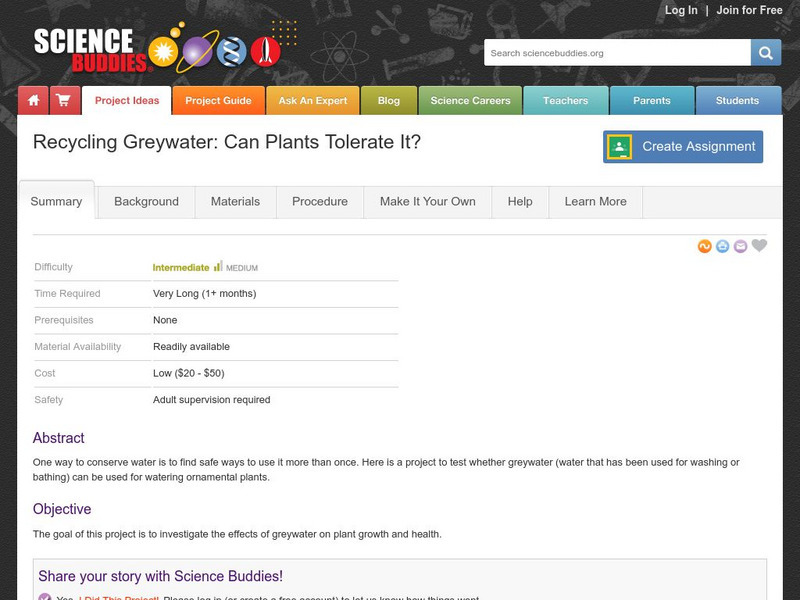

![Tceq: Lesson Plans & Resources for Teaching Environmental Sciences [Pdf] Lesson Plan Tceq: Lesson Plans & Resources for Teaching Environmental Sciences [Pdf] Lesson Plan](https://d15y2dacu3jp90.cloudfront.net/images/attachment_defaults/resource/large/FPO-knovation.png)

